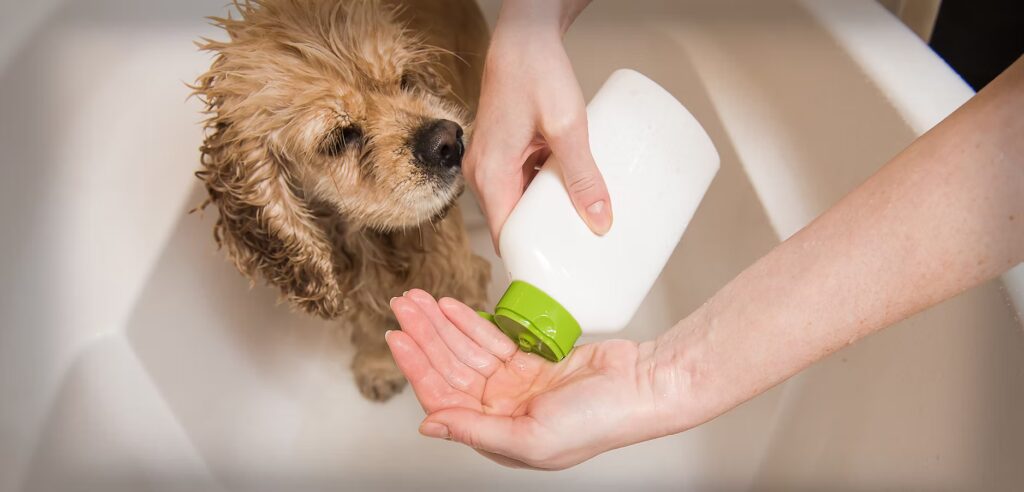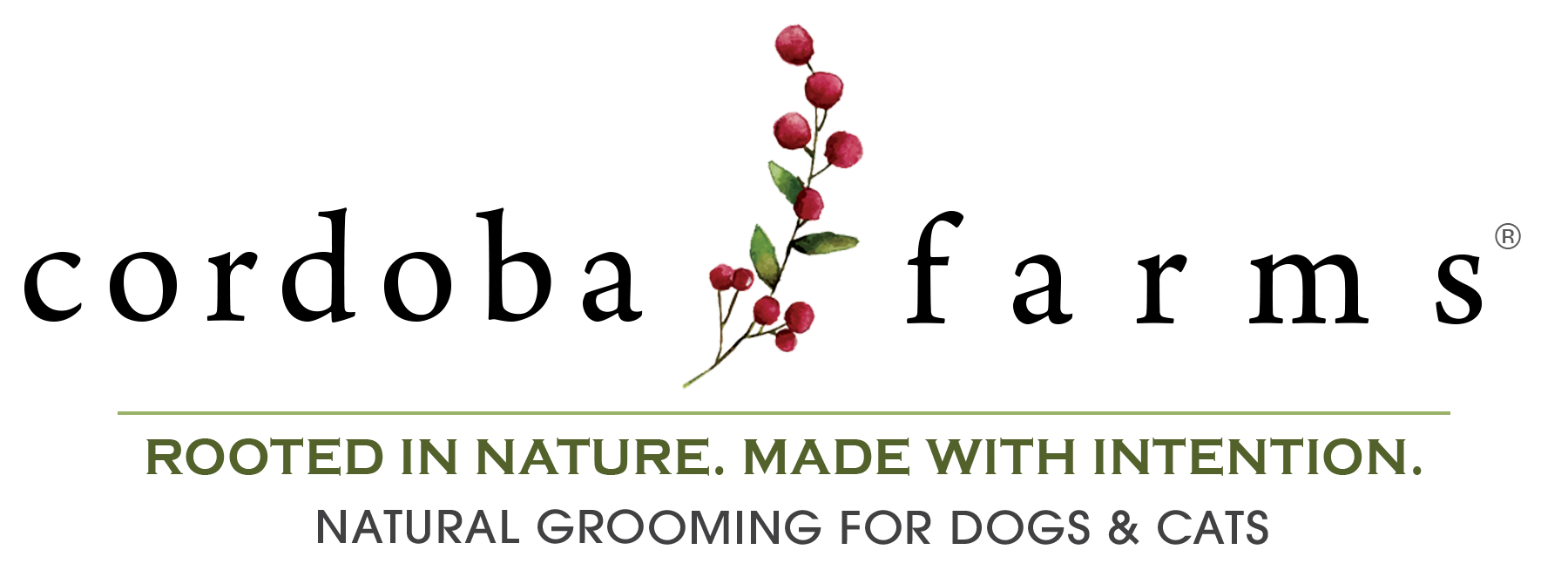
Do you know what’s in your dog’s shampoo?
Just like with our own hair care products, dog shampoos are often made with a toxic ingredients. Understanding what those ingredients are is essential to ensuring what you are putting on your pets body is good for their overall health. Most manufacturers use chemicals to produce an affordable product for mass production. They may be labeled as using “natural” ingredients and boast big foamy bubbles… but do you really understand what those unfamiliar, hard-to-read words are? We are here to break it down for you.
Formaldehyde
Used in pet grooming products as a preservative, this harmful ingredient can cause very itchy skin and even blister.
Can be listed/hidden under the names:
Diazolidinyl urea, Imidazolidinyl urea, Quarternium-15
Phthalates
Listed as a carcinogenic by the The International Agency for Research on Cancer (IARC this can cause major issues to a dog’s endocrine system. This ingredient is also used in vinyl flooring and to soften plastic.
Parabens
Used as a preservative, this chemical is known to build up inside the body, and over time can lead to cancer, and other health issues.
Can be listed/hidden under the names:
Butylparaben, Propylparaben, Methylparaben
Cocamide MEA
Used to make liquid thick and foamy, this ingredient is often marketed as a natural. Coconut fatty acids are used in the process, but this is made with a synthetic chemical called monoethanolamide (MEA). Toxic and harmful to dog’s skin.
Isopropyl alcohol
Commonly known as rubbing alcohol, this highly drying ingredient makes skin more porous, making it easier for other toxic ingredients to absorb into your dogs’ skin.
Can be listed/hidden under the names:
SD Alcohol 40 or SD-40
Ethanolamine Compounds
Similar to MEA, these are emulsifiers and help to make shampoo foamy. These compounds have been linked to liver cancer, ahormone disruption, liver tumours, and buildup in the kidneys and liver, causing organ toxicity.
Listed/hidden under the names:
Diethanolamine (DEA) and Triethanolamine (TEA)
Polyethylene Glycol (PEG) & Propylene Glycol (PPG)
(PEG) is a synthetic ingredient made from petroleum and used to help retain moisture and water and help make those large, soap bubbles that most think are cleaning our dog. It is very harsh on dog’s coat and skin and is known as a penetration enhancer which encourages the absorption of other harmful chemicals. This ingredient is often used in laxatives and as a ink solvent for printer heads.
Used in products to prevent products from melting or freezing, PPG makes skin porous which allows allows toxic and harmful substances to reach your dogs bloodstream.
Sulfates
Sulfates are surfactants are commonly found in many household products andact as foaming agents or emulsifiers to help clean dirt and oil off of skin but are also very drying. It can contain ethylene oxide, which the IARC has listed as a carcinogen.
Listed as:
Sodium Lauryl Sulfate, Sodium Laureth Sulfate and Ammonium Laureth Sulfate
Phenoxyethanol
This checmical is used as a preservative in dog shampoo and has a rose-like scent. While approved in small doses, studies have shown this ingredient can to lead to hives, eczema, rashes and skin irritation in both humans and pets.
Listed/hidden under the names:
PhE, Dowanol, Rose Ether, Phenoxetol, Ethylene Glycol Monophenyl Ether or Beta-hydroxyethyl Phenyl Ether
Petrochemicals
A byproduct of the Petroleum industry, this chemcial is used as moisturizing agent or to add fragrance, but there are some serious side effects associated with their use.Petrochemicals like Aldehydes and Benzene Derivatives can cause allergic reactions, central nervous system disorders, and cancer.
Triclosan
A chlorinated organic compound with antibacterial and antifungal properties, widely used in household and medical products. Recent studies show that brief exposure to Triclosan, at relatively low doses, can cause low-grade colonic inflammation, increases colitis and exacerbates colitis-associated colon cancer. These findings pose another concern regarding the cause of dysbiosis and inflammatory bowel disease in dogs and cats. Chronic exposure and ingestion of TCS may also contribute to skin and thyroid problems as well as well as food allergies.
You have a choice when it comes to using healthy grooming products for your pet.
Why choose chemicals when there’s a natural alternative?
Get the Scoop on our ingredients.

